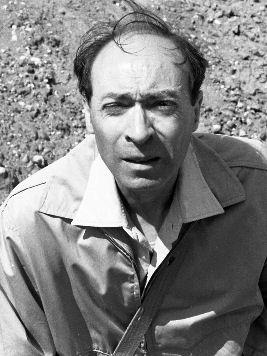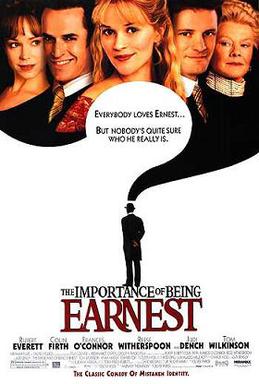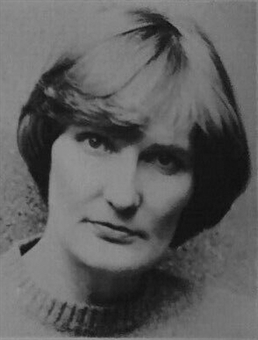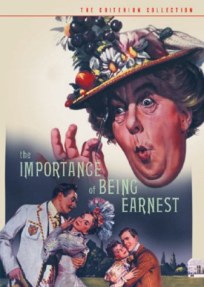
The Importance of Being Earnest, A Trivial Comedy for Serious People is a play by Oscar Wilde. First performed on 14 February 1895 at the St James's Theatre in London, it is a farcical comedy in which the protagonists maintain fictitious personae to escape burdensome social obligations. Working within the social conventions of late Victorian London, the play's major themes are the triviality with which it treats institutions as serious as marriage and the resulting satire of Victorian conformity. Some contemporary reviews praised the play's humour as the culmination of Wilde's artistic career, while others were cautious about its lack of social messages. Its high farce and witty dialogue have helped make The Importance of Being Earnest an enduringly popular play.

Dame Margaret Taylor Rutherford, was an English actress of stage, film and television.

Dame Dorothy Tutin, was an English actress of stage, film and television. For her work in the theatre, she won two Olivier Awards and two Evening Standard Awards for Best Actress. She was made a CBE in 1967 and a Dame (DBE) in 2000.

Dame Edith Mary Evans, was an English actress. She was best known for her work on the stage, but also appeared in films at the beginning and towards the end of her career. Between 1964 and 1968, she was nominated for three Academy Awards.

Anthony Asquith was an English film director. He collaborated successfully with playwright Terence Rattigan on The Winslow Boy (1948) and The Browning Version (1951), among other adaptations. His other notable films include Pygmalion (1938), French Without Tears (1940), The Way to the Stars (1945) and a 1952 adaptation of Oscar Wilde's The Importance of Being Earnest.

Jennifer "Gemma" Jones is an English actress. Appearing on both stage and screen, her film appearances include Sense and Sensibility (1995), the Bridget Jones series (2001–2016), the Harry Potter series (2002–2011), You Will Meet a Tall Dark Stranger (2010), and Ammonite (2020).

John Michael Terence Wellesley Denison was an English actor. He often appeared with his wife, Dulcie Gray, with whom he featured in several films and more than 100 West End theatre productions.

Cyril Leonard Shaps was an English actor of radio, television and film, with a career spanning over seven decades.

The Importance of Being Earnest is a 2002 romantic comedy-drama film directed by Oliver Parker, based on Oscar Wilde's classic 1895 comedy of manners of the same name. The original music score is composed by Charlie Mole. The film grossed $8.4 million in North America.

Charmian Rosemary May was an English character actress best known for her television and film roles. She appeared in the sitcoms The Good Life, The Upper Hand and Keeping Up Appearances, and the film Bridget Jones's Diary. She appeared as Miss Pershore in episodes 6 and 7 of The Fall and Rise of Reginald Perrin (1976).

Ernest in Love is a musical with a book and lyrics by Anne Croswell and music by Lee Pockriss. It is based on The Importance of Being Earnest, Oscar Wilde's classic 1895 comedy of manners.
Celia Bannerman is an English actress and director.
The Importance of Being Earnest is a filmed version of the 2011 Broadway revival production of Oscar Wilde's 1895 play of the same name. The film is directed by and stars Brian Bedford.
Sara Topham is a Canadian actress. She is primarily associated with stage roles at the Stratford Shakespeare Festival in Ontario, Canada.

The Importance of Being Earnest is a three-act opera by Gerald Barry based on the 1895 play of the same name by Oscar Wilde. The opera was given concert performances in Los Angeles in 2011 and in London and Birmingham in 2012, and received its first fully staged performances in 2013 at the Opéra national de Lorraine, Nancy. Its first British staged performance took place at the Linbury Studio Theatre, Covent Garden, in 2013.
The Importance of Being Earnest is a 1957 Australian TV performance of the 1895 play by Oscar Wilde. It was directed by Paul O'Loughlin. It was made at a time when Australian drama production was rare.
To Hell in a Handbag: The Secret Lives of Canon Chasuble and Miss Prism is a 2016 play by the Irish actor/writers Helen Norton and Jonathan White. It deals with two minor characters from Oscar Wilde’s play The Importance of Being Earnest.
The Importance of Being Earnest is a 1992 American film adaptation of the 1895 play of the same name by Oscar Wilde, featuring an all-black cast.
Emily Barber is an English stage, television and film actress having had roles in Endeavour and The Royals (2018), Call The Midwife and Backdraft 2 (2019), The Alienist (2020), and Bridgerton in 2022.
Acting for a Cause is a live read series of classic plays and screenplays created, produced, directed and hosted by Brando Crawford. The script is typically announced days before the event alongside a playbill featuring the cast and an animation on Instagram. The actors have one rehearsal ahead of time. Each reading is organized to raise money for charity. The readings garnered over 500,000 viewers between the first play read on March 27, 2020 and the last announced read on July 31, 2020.












